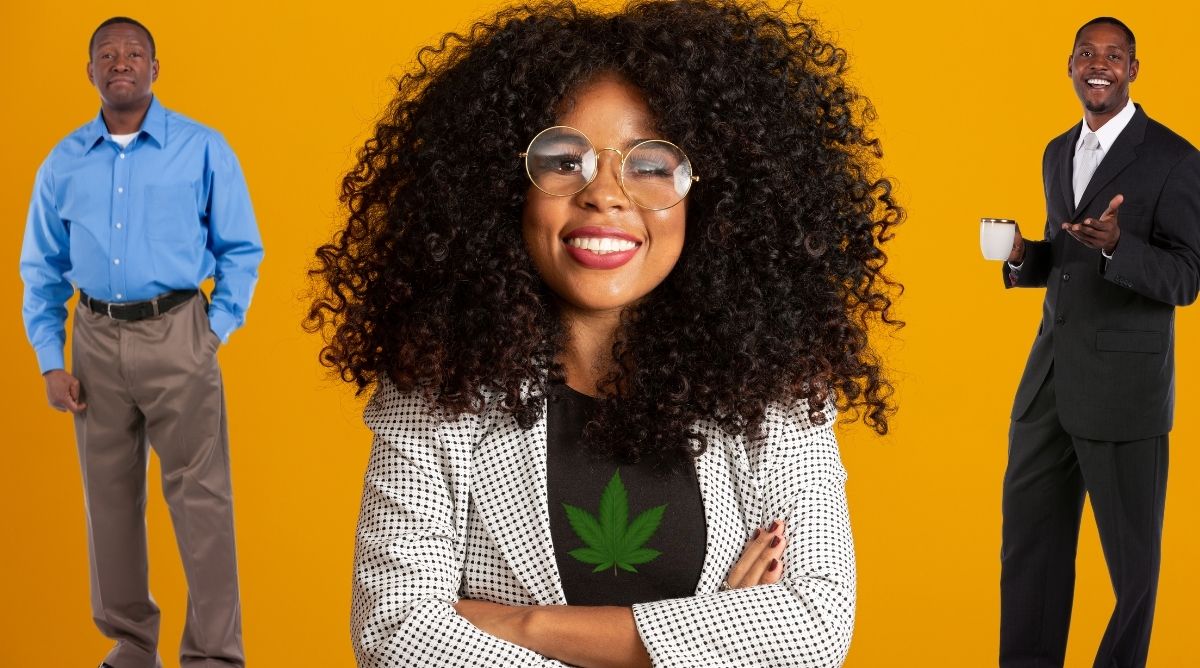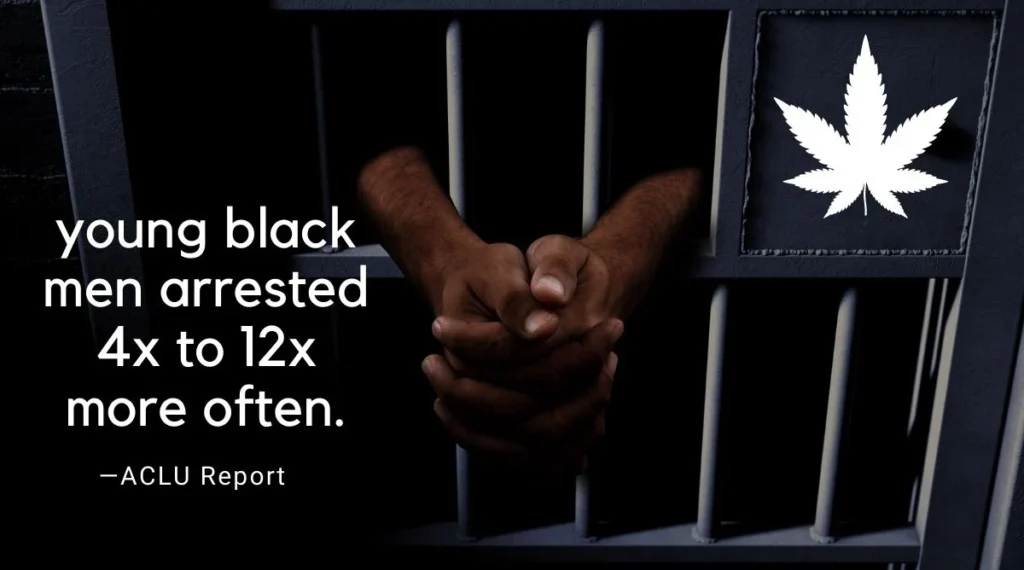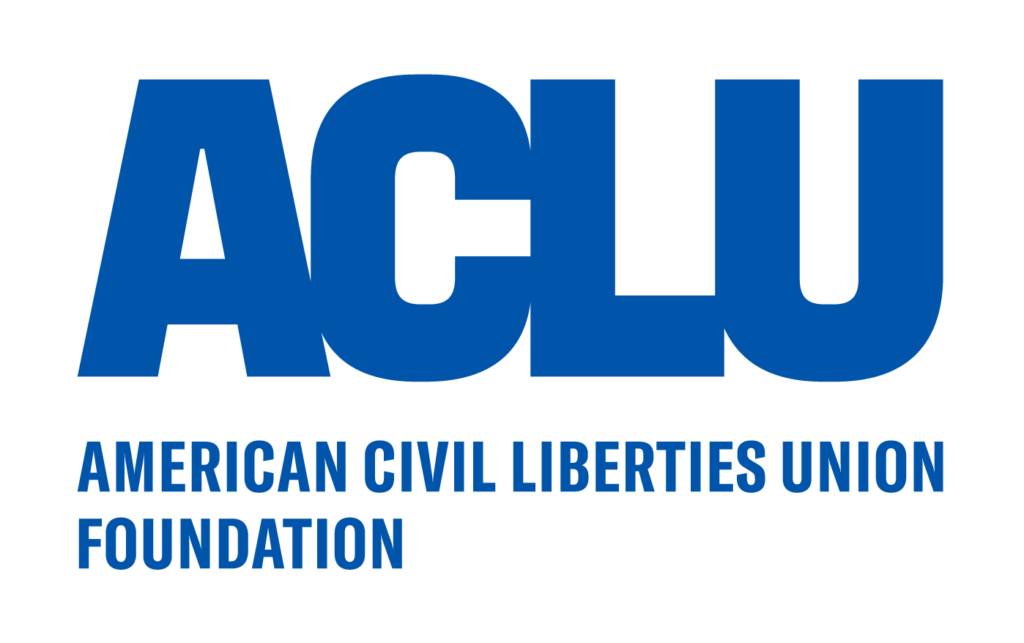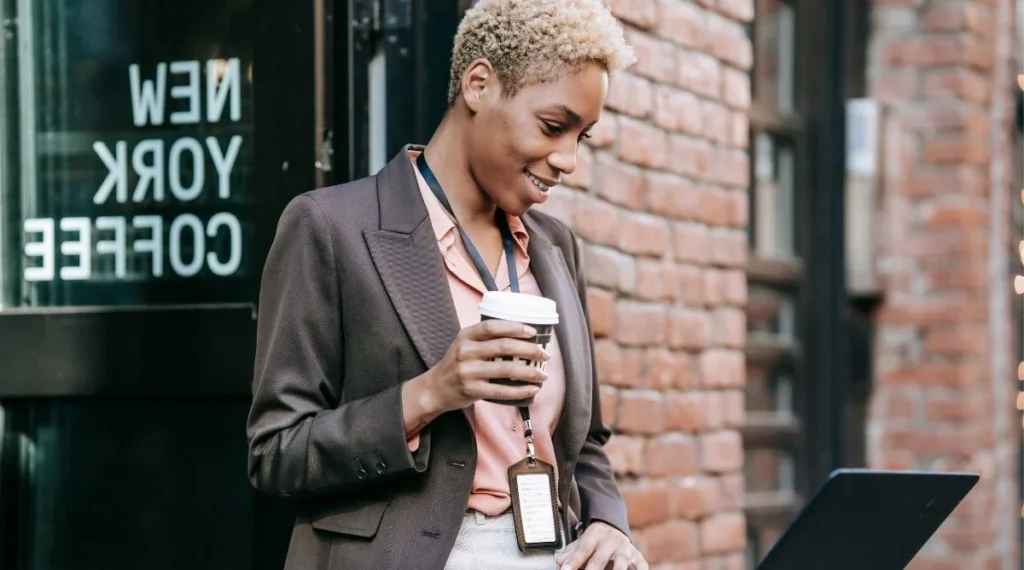
When it comes to 420 culture, there is only one color; green. There is a shared appreciation for the medicinal and mental health benefits. An herbal kind of Namaste experienced by most people that use cannabis.
Digging down into the history of cannabis prohibition, you learn a lot about racism in America. Immigrants from Mexico were originally blamed for importing cannabis to the United States. Or rather, infecting our culture with it. And then, communities of color were blamed for distributing it and perpetuating violence, which was blamed on rampant drug use among people of color (POCs).
The Anslinger propaganda started blaming people of color for corrupting good, white American youth with marijuana. And from there, an arrest bias for cannabis criminal charges began. Did you know that people of color are over four times more likely to be arrested for personal use possession? And for no other legitimate reason, sentences for cannabis use have been disproportionately worse for non-whites in the United States.
What impact did the arrest bias for cannabis use have on black communities? A generational one, according to sociologists and policymakers. That is why states have made social equity provisions in their legislation. To make sure in the midst of the ‘green gold rush’ that POC entrepreneurs and communities are not left out.
The city of New York is a great place to illustrate the serious problem. Because if there was one place that might have less of a problem with arrest bias, wouldn’t be a large metropolis with a diversity of cultures and ethnicities?
In 2019, the New York Police Department commissioned a local study on cannabis use. The NYPD wanted to know if caucasian or white residents were more likely to buy and use cannabis than persons of color living in the city. The data was collected from the Substance Abuse and Mental Health Services Administration.
The study reviewed data from across the five boroughs of NYC. And it was the first of its kind to look at cannabis use. The results found that almost twice as many white New Yorkers (24.1%) used cannabis, compared to black (14%) and Latino residents (12.3%).
About 93% of the 1,061 people arrested for personal use of cannabis in the first half of 2019 were black or Latino. Only 4% of citizens arrested were white.
The New York Times ran a special editorial in 2018. When you read the article “Surest Way to Face Marijuana Charges in New York: Be Black or Hispanic”, the racial disparities are impossible to ignore. And so is the arrest bias, using one of the most liberal cities in the country as an example.
When Mayor Bloomberg was in charge, cannabis arrests in NYC peaked at 50,000 per year. Policies by Mayor Bill De Blasio in 2014 were able to knock that number down to just over 17,000 cannabis arrests annually. Charges were still overwhelmingly dealt with,” POCs versus white residents.

Using the example of New York helps to start the conversation about arrest bias. And how deeply ingrained the social stigmas about cannabis are. What would Anslinger say today if he saw that more white Americans use cannabis than people of color? He would blame the plague of cannabis on white society on the influence of other ethnicities.
White people, after all, can’t do bad or illegal things unless they are influenced by someone who isn’t while, who wants to corrupt them. Sounds extreme, right? But watch even a few minutes of “Reefer Madness,” and you’ll see how real the propaganda was. And it has been pervasive.
Cities can claim that there are more drug arrests in black or brown communities. But did you know that in almost every case, more police are dispatched to those specific communities? So, if you have more police presence, chances are you are going to have a higher arrest rate, right?
Statistics can be easily manipulated. Black and brown communities may also struggle socioeconomically. Fewer jobs. More low-paying jobs. Fewer government programs like subsidized housing and childcare. This adds up to an economic burden that breeds crime. And more police presence. Which results in higher drug arrest rates. Even for small personal use amounts.
But maybe that is just New York, right? The racial disparity in cannabis arrest rates is prevalent in every state. A systemic problem that has persisted for decades. Take a look at some of the data about arrest bias from other states.
A similar report was conducted by the Wisconsin District Attorney’s Office in 2021. And it looked at different boroughs in Milwaukee County. The study revealed that black and brown citizens were over 4.3 times more likely to be arrested and convicted for a marijuana charge. Despite marijuana arrests reportedly dropping by 50% since 2010 in Milwaukee County.
In the 2018 midterm elections, more than 70% of Milwaukee County voters supported social equity reform. Then Gov. Tony Evers entered office supporting social equity legislation. Unfortunately, decriminalization of cannabis faced staunch opposition both in the Wisconsin House of Representatives and the Senate. However, many cities across the state have enacted their own decriminalization ordinances.
Back in 2010 in the District of Columbia, someone got arrested for pot every two hours. Not kidding. The American Civil Liberties Union (ACLU) math doesn’t lie. And neither does their statistical review of racial bias in D.C. cannabis arrest rates.
National arrest data reviewed by the ACLU for 2010 paints a more accurate picture. Overall in the United States in 2010, there were 256 arrests for marijuana possession per 100,000 people.
In D.C., more than 50% of the population are people of color. But from 2001 to 2010, 91% of people arrested for personal-use amounts of cannabis were black. In 2010, the number of black people arrested on cannabis charges rose to 4,908.
The unofficial capital state of cannabis? New York may have had Woodstock, but California had Los Angeles and Hollywood. And propagated pot popular culture around the world. Surely the Golden State wouldn’t have a problem with arrest bias, right? Wrong.
In October 2010, a startling report was released called “Arresting Black for Marijuana in California: Possession Arrests in 25 Cities, 2006-2008”. The Marijuana Arrest Research Project prepared it for the Drug Policy Alliance and the California NAACP. And interestingly, many of the Ph.D. researchers for the report were from New York.
Here are some of the shocking findings in the report:
One of the very interesting conclusions provided by the study is how decriminalization isn’t enough to provide social equity. If drug charges for personal use are reduced to misdemeanors, it will not (and has not) impact arrest bias. Law enforcement has also disproportionately issued more misdemeanor charges (which are still public record and damaging) to black and brown citizens.

The American Civil Liberties Union published a must-read report if you want to understand the prevailing arrest bias for people of color. The ACLU’s “A Tale of Two Countries: Racially Targeted Arrests in the Era of Marijuana Reform” paints a conclusive picture of the injustice for black and brown Americans.
The good news? The report also stated that in a survey of thirty-one (31) states, racial disparities peaked in 2018 and were significantly lower in 2010. But the 2020 analysis still reported that people of color were 3.64 times more likely to be arrested for marijuana possession. For small personal use amounts.
The problem was always there. But the people who were aware of it were not the same people who made laws and policies. Individuals who had the power to start making changes to correct course, end arrest bias and start talking about reparation. Ways to help black and brown communities recover from being victimized by racial drug policies.
Because that is really what social equity is about. Anyone who claims that it gives black and brown Americans an unfair advantage hasn’t been paying attention to the damage that the arrest bias has done to families and whole communities.
Since cannabis created the problem, cannabis is being used to repair some of that damage. By creating equal opportunities for POC entrepreneurs to enter the lucrative medical and/or adult-use commercial market.
Creating entrepreneurship opportunities and new jobs is only the start, however. The National Association of Cannabis Businesses (NACB) provides a framework that states can design programs and laws that help create reparation to black and brown citizens, their families, and their communities.
The guidelines for state cannabis social equity programs include:
Consequently, states that have legalized cannabis are actively pursuing laws that decriminalize personal use possession. So that the criminal charges don’t happen in the first place, some states have replaced charges with fines, combined with mandatory drug education courses.

The eligibility to apply for a business license or other services through a cannabis social equity program may seem straightforward. But there are some criteria for selecting citizens that are eligible. And that criteria vary by state.
Most states require that applicants have been residents for at least ten years. In some cases, lifelong residence (born in the state) is required for eligibility. And POC entrepreneurs applying for licenses and programs must demonstrate they are from a region that has been impacted negatively by ‘the war on drugs.’
That usually means an underfunded jurisdiction with a predominantly black population. Other criteria like above-average crime rates and historically high numbers of local marijuana arrests involving persons of color.
There is still a large barrier when it comes to cannabis and social equity in legalized states. A criminal record review is required before being granted a business license for a cannabis start-up. If you have a prior charge, state laws will not allow you to get a business license. However, applicants can pursue expungement through new programs and laws to qualify.
Featured Image: Canva
No Information on MarijuanaDoctors.Com should be used to diagnose, treat, prevent or cure any disease or condition. You can view our Full Disclaimer here.